Suez University
About Suez University
Suez Canal University was established in 1976 under Decree No. 93 to reconstruct the Canal area and Sinai and in recognition of the sacrifices of its people in repelling the successive waves of aggression that it was subjected to. The university started with three faculties: the Faculty of Engineering and Technology, the Faculty of Commercial and Administrative Sciences in Port Said, and the Faculty of Petroleum and Mining in Suez. In 1977, the study began in three faculties of the university branch in Ismailia, namely the faculties of science, education and agriculture, and the establishment of faculties in the university until the number of faculties reached 23 in 2006 at Suez Canal University in Ismailia and its three branches in Port Said and Suez and Arish, the three branches were separated to become independent universities.
Decision of the President of the Arab Republic of Egypt
University branch in Port Said No. (56) of 2010 on 24/2/2010 to convert the Suez Canal University branch in Port Said city to Port Said University.
University branch in Suez No. (193) for the year 2012 on 22/8/2012 to convert the branch of Suez Canal University in Suez city to Suez University.
University branch in Al-Arish No. (147) of 2016 on 5/4/2016 converting the Suez Canal University branch in Al-Arish city to Al-Arish University.
With the separation of the three branches, then, the headquarters of the mother university in Ismailia remained thirteen faculties and two institutes.
Majors & Colleges
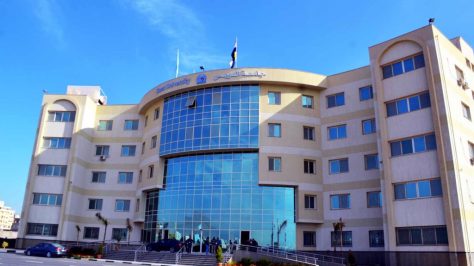
Suez University has many faculties and institutes:
Education and Humanities
Faculty of Education
Faculty of Commerce
Faculty of Arts
Faculty of Physical Education
Faculty of Tourism and Hotels
Engineering and Technology
College of Engineering
Faculty of Computing and Information
Egyptian Chinese College of Applied Technology
Health and Medicine
Faculty of Medicine
Faculty of Dentistry
Faculty of Pharmacy
Faculty of Nursing
Natural Sciences
Faculty of Science
Faculty of Veterinary Medicine
Faculty of Agriculture
Institutes
Institute of Aquaculture and Fish Technology
Biotechnology Institute
Afro-Asian Institute
Confucius Institute
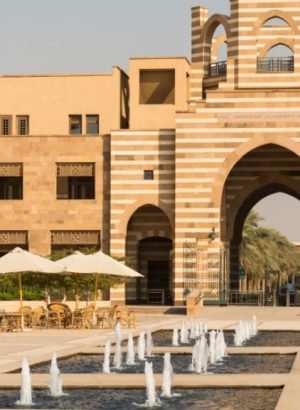
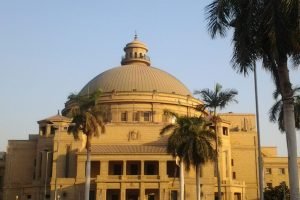
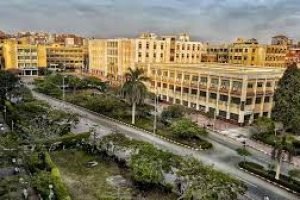
-
- Medicine and Dentistry $6,000 per year.
- The faculties of Engineering, Computing, Pharmacy and Physiotherapy are $5,500 per year.
- Veterinary Medicine, Agriculture, Science and Nursing $5,000
- Other colleges and institutes $4,500 per year
Required documents to secure admission to the bachelor stage:
- Detection of high school signs
- A copy of the original student’s passport
- Colored personal photo
- Photocopy of father and mother’s passport
Required documents to complete the student registration at the university for the bachelor’s level:
- Original high school grades attested by the Foreign Ministry and the Egyptian Embassy
- Original Birth Certificate
- Valid Passport – Color photocopy of passport
- 8 selfies with white background
- A judicial agency for the institution’s representative in Cairo to complete the student registration procedures at the university
Bachelor Stage:
- The student pays a first-time enrollment installation fee of $1,500 paid only once.
- Medical and dental schools $6,000 per year.
- The faculties of Engineering, Computing, Pharmacy and Physiotherapy $5,000 per year.
- Colleges of Veterinary Medicine, Agriculture, Science and Nursing $4,000 per year.
- The rest of the colleges and other institutes are $3000 per year.
University Vision
Suez Canal University seeks leadership and excellence in higher education, scientific research, and community service locally, regionally, and internationally.
Message
Suez Canal University is working to graduate distinguished human cadres capable of competing in the labor market under a system of quality education and applied scientific research directed to serve the community while keeping pace with technological development within a framework of values and ethics.
Top 9 benefits to study in Egypt
Suez University Strategic Objectives
- Developing programs and courses of study and developing new programs for the needs of the labor market.
- Raising the efficiency of the educational process in the colleges.
- Activating the role of the university in building the student’s personality.
- Activate communication with graduates.
- Developing the scientific research system.
- Developing graduate programs and courses to meet the needs of the local and regional labor market.
- Developing the management systems of the graduate sector. Expanding the attraction of international students. Strengthen the local, regional and international relations of the University. Developing the electronic infrastructure of the university.
- Develop electronic programs that meet the needs of the university.
- Ensure the sustainability of e-services at the university.
- Increase the number of university-accredited faculties.
- Seek academic accreditation for the university.
- Increasing the efficiency of the use of available resources and the development of their own resources.
- Activating the role of the university in the development project of the Suez Canal axis.
- Increased services provided to the community.
- Improve the performance of the administrative system.
- Increased job satisfaction.
Cost of Living in Egypt:
Costs of living are relatively low in Egypt, especially when compared to Western study destinations, and according to Numbeo, the cost of living is 61% lower than in the UK. A one-bedroom apartment in the city center costs just around $148 USD.
On average, a student needs $300-400 per month including housing and living costs.
Services provided by IFSM:
Preparatory Program for Study in Egypt (Arabic – English) Certified Lecturers in Egyptian Universities:
Qualifying program to review the first semesters of each university in various subjects ( Physics, Chemistry, Mathematics, Biology, Arabic and English to ensure student excellence in the first stage of his studies in Egypt) Exclusively for students of the International Foundation for Science and Management.
Identify the customs and traditions of the Egyptian people and the most important Egyptian laws for foreign affairs to avoid any problems or obstacles that may face the student in his studies in Egypt.
Learn about Egyptian culture, popular foods, the Egyptian currency, internal transfers, climate, and everything that interests the expatriate student; to integrate him into Egyptian life, and reduce the feeling of alienation.
Department of Teaching Arabic Language for Non-Speakers:
A specialized section for foreigners who do not speak Arabic at the hands of elite Egyptian university professors, which helps them to study and engage in Egyptian society easily.
Services provided by the International Foundation for Science and Management for the Students
- Ensure the initial acceptance of the Egyptian Expatriates / Higher Education Department in a quick and easy manner
- Ensure discount rate for students wishing to study in Egyptian universities in accordance with the decisions of the Ministry of Higher Education
- Payment of application fees for expatriate management
- Pay the coordination service fee for final acceptance
- Payment of expatriate club fees for all foreign students
- Opening a file for the student to complete his registration at the university
- Student registration at the university up to the payment of fees
- Finalization of Student Visa and Residence
- Students’ reception at the airport
- Student accommodation insurance according to the Student’s desire
- Parent Services
- Care services Student support throughout the study period
- Legal Consultancy Center membership for one year free of charge ( Marriage Counseling for Foreigners – Work – Residence – Nationality )
- Introduction Tour
- Health insurance for foreigners
- Phone SIM card
- Open a bank account
- Competitions for entertainment and cultural trips inside and outside Egypt exclusively for the students of the Foundation
- Subscription of transportation means (by province)
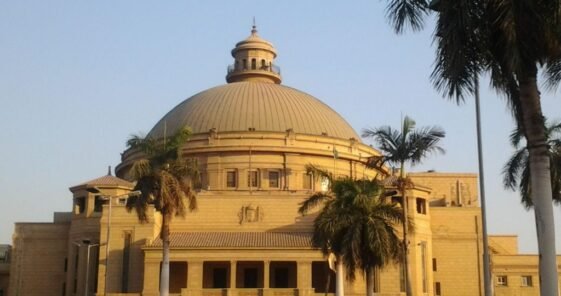
Meet with your educational advisor for options
Helping you determine the right one for you and directing your educational path to the better


